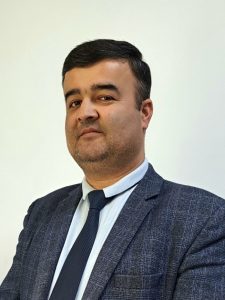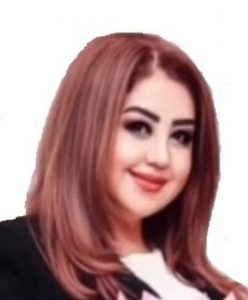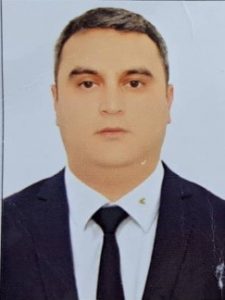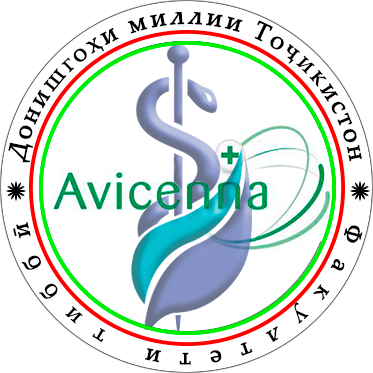The Faculty of Medicine of TNU is considered the base of science, knowledge and innovation in the country. Because great domestic and foreign scientists work here and began their scientific and teaching activities, and this tradition continues to this day. Faculty of Development Medical science and the provision of highly qualified personnel to government agencies are also considered significant. Faculty structure The department is responsible for increasing the level of knowledge and skills of students, as well as conducting research activities. One of these departments of the faculty is the Department of Therapy. Well-known teachers of the department Odinaev F.I., Soliev F.G.; Odinaev S.N. and others. Soliev F.G. as a highly cultured teacher, strict and kind, they consider science and education very responsible.
Scientific activity
The department teaches the main subjects – “Internal Diseases”, “Prapedeutics of Internal Diseases”, “Occupational Diseases” and special subjects – “Neurology”, “Psychiatry” and
“Cardiology” in full-time departments, since the organization of the department.
Academic subjects:
Internal illnesses;
Propaedeutics of internal diseases;
Military field medicine;
KKN;
Exercise therapy and physiotherapy
Specialized items:
neurology;
psychiatry;
cardiology;
occupational diseases
Introduction
In 2023-2024, during its activity, the department will implement a full curriculum and conduct scientific research according to the plan. At the same time, during the reporting period, members of the Department of Therapy contributed to the development of a number of scientific projects and the implementation of instructions from the university board. In order to ensure the effectiveness of activities, members of the department should take the following actions, such as attracting experienced specialists from practice, increasing and strengthening the participation of department teachers in each other’s classes, taking into account new public demands, and the emerging modern science, re-developing the topics of diploma and term papers, has developed a methodology use of visual materials in seminar classes.
Teachers of the department
In 2023-2024, 9 full-time teachers and 20 non-full-time teachers (part-time) worked at the department.
Currently, the full-time teachers of the department are the following persons:
Nazarov P.Yu. – and about. head of the department
Saidova O.K. – Candidate of Medical Sciences. assistant
Rizoeva O.R. — Candidate of Medical Sciences, assistant;
Muminov Sh.Zh. – assistant;
Nozirov K.B. – assistant;
Davlatov M.D.-assistant;
Yakubov M.R. – assistant:
Akhmadzoda F.N. – assistant;
Isvaliev M.J. – assistant;
Part-time teachers:
Khabibov Islamiddin Azamovich
Bukhorieva Shabnam Khurshedovna;
Khalilova Dilfuza Raufjonovna;
Gafurzoda Dildora;
Nazarov Abdusami Abdusamadovich;
Ibodov Fariddun Mukhriddinovich;
Khodzhaev Izatullo Kholovich;
Kosimova Fotima Sukhrobovna;
Abdulloeva Munira Shonazarovna;
Muradova Bibigul Mirzoevna;
Davlatov Kaykhan Gabilzhanovich;
Davlatzoda Rakhimjon Davlatsho;
Mirov Emomali;
Karimov Farhod;
Ismoilchoni
Markhamadova Dilafruz;
Abdulloev Firdavs Nazirovich;
Rashidov Ismoil;
Saidov Safarkhon Samadovich;
Kholikova Nigina Nabichonovna;

Nazarov Parviz Yusupovich
Department of Therapy Position: acting head of department
Academic title:
Academic degree:
Areas of scientific activity: Internal diseases, occupational diseases
Award and title:
Brief overview Information:
1997 – 2002, medical faculty of DDTT named after Abu Ali Ibn Sina
2002-2003 internship – therapist at the Abu Ali ibn Sina Children’s Hospital
Work experience and teaching activities:
Since 2019, TNU has been teaching at the Faculty of Medicine.
Other reference information:
Date of birth: 07/04/1980.

Rizoeva Oitilo Rustamovna
Year of birth October 1, 1970
Education: higher, graduated from the State Medical University of Tajikistan in 2003.
Academic title: Candidate of Medical Sciences
Years 1993-2003 Student of the Tajik State Medical University named after Abuali ibn Sino
Years 2003-2004 Family doctor, Health Center No. 2, Kulob
2005-2006 Teacher of internal medicine, Medical College of Kulyab Years 2006-2009 Doctor of the neurological department of hospital clinic No. 5, Dushanbe
Years 2009-2012 Head of the department for relations with the media society of the Republican Center for the Organization of a Healthy Lifestyle in Dushanbe
- Director of the Communications Department, statistician of the Republican Center for theFormation of a Healthy Lifestyle in Dushanbe
2012-2016 Head of the Department of Hygiene, Republican Medical College of the Ministry of Health of the Republic of Tajikistan
2016-2018 Attending physician at the gastroenterology department of Clinical Hospital No. 5 in Dushanbe
2018-2019 Doctor, State Institution City Medical Center No. 2, Dushanbe Years
2019-2020 Assistant at the Department of Therapy, Faculty of Medicine, National University of Tajikistan
Since 10/13/2020, Assistant at the Department of Therapy, Faculty of Medicine, National University of Tajikistan.

Muminov Sharafjon Dzhamakhonovich
Year of birth:09/01/1987
Education: higher, graduated from the State Medical University of Tajikistan named after Abu Ali ibn Sino in 2010.
Veteran’s work and activities:
2004-2010 Student at TSMU named after Abuali Ibn Sino
2010-2011 neurologist-resident, MTS No. 1
2011-2013 neurologist at Medical Center No. 2 in Dushanbe
2013-2015, neurologist at the Medical Department of the Medical Clinical Clinical Hospital in Dushanbe
2017-2021 correspondence postgraduate student of the Department of Neurology and Fundamentals of Medical Genetics, TSMU named after Abu Ali Ibn Sino
2015 to present Assistant at the Department of Therapy
Subjects of the department
Currently, lectures and seminars are held in the following subjects:
internal illnesses;
training in the basics of internal medicine;
field military medicine
Special courses
neurology
psychiatry;
cardiology;
Occupational diseases
Educational and methodological materials of the department This year, teachers of the department published the textbook “Internal Diseases”, educational and methodological manuals “Neurology” and “Occupational Diseases”. At the same time, the department decided to prepare and publish a textbook on “Internal Medicine” in the state language by the beginning of the next academic year.
Organization of scientific research at the department
During the reporting period, a seminar was held at the department with the participation of representatives of the medical field. At the same time, teachers of the Department of Therapy published their scientific articles in domestic and foreign scientific journals. Masters and graduate students of the department regularly publish their scientific articles in domestic scientific journals, such as “News of China”, “Healthcare of Tajikistan”, “Science and Technology”, “Emergency Care” and others.
Student scientific circle
Courses in pediatrics and family medicine have been functioning at the Department of Therapy since the first years of its foundation. In the 2022-2023 academic year, medical courses are separated from the Department of Therapy, and the Department of Pediatrics and Family Medicine continues to operate separately. Once a week, a scientific meeting is held under the leadership of Associate Professor Muminov, with the participation of students from all working specialties of the Faculty of Medicine, and the best reports are recommended for the April conference. According to the approved plan of TNU for the April conference, 4 people will give reports in the field of therapy.
Educational work
Faculty members of the Department of Therapy make a valuable contribution to the development of students along with education. Given the presence of a law enforcement specialty at the department, in these academic groups, teachers act as chiefs.
Moreover, once every two months, in accordance with the department’s work plan, the results of the activities of the department’s patrons are discussed at department meetings, and recommendations are made to improve the efficiency of their work.

